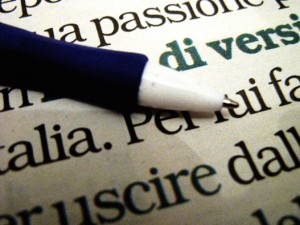The Reading-Writing Nexus
Reading and writings go hand in hand. I wanted to be a writer because I loved reading so much. I wanted to do for other people what writers were doing for me.
In a presentation to a large group of teenagers, I was once asked about the connection between reading and writing. An eager looking young girl put her hand up at the Q&A part of the session, got hold of the microphone and asked: ‘Do you have to read if you want to be a writer?’
Dozens of answers flashed through my mind, but I went with the first: ‘Yes.’
Her reaction? ‘Oh, bummer,’ she said, downcast.
I’m not sure if she suddenly saw her entire career path flying out the window at that moment or what …
Part of my mission in life is to turn non-readers into readers. It makes them better people, for a start, and it might help me stay in a job. When I was still working as teacher and writing part time, one of my colleagues was a physics teacher who would proudly declare he hadn’t read a book since he finished Year 12. And, as an aside, isn’t it interesting how some people say that proudly, as a badge of honour? I would have thought it to be a secret shame, but there you go.
He was my special case. I wouldn’t let it drop. I nagged, and I cajoled, and I wheedled, and I blustered. I don’t know what worked, but one day he sidled up to be and said, ‘Get a look at this.’
And he thrust a library card under my nose. It had his name on it.
‘I thought I’d give it a go,’ he said. ‘Just to get you off my back.
And he wandered off. To bounce some lights through prisms or stare at an oscilloscope, no doubt.
I left it. Didn’t want to pressure him. But I was worried after a few weeks because I hadn’t heard anything.
Then one lunchtime, a month after the LCI (Library Card Incident), he finished his salad roll (no beetroot) and speared me with a look. ‘I’m up to D,’ he said.
‘What?’
‘I’m up to D.’
He explained. Being a methodical man, and new to this reading fiction business, he’d done the only natural thing and started his reading journey with the authors whose names started with ‘A’.
I didn’t burst out laughing. So help me –thanks to my superbly toned diaphragm – I didn’t burst out laughing.
He was quietly pleased with his progress, and we discussed Douglas Adams and John Bunyan and Patricia Cornwell (‘a bit gory’).
This rapport established, from then on, he’d give me little updates: ‘The Fs aren’t much chop’; ‘Liked the Js’; ‘Not many Qs, are there?’
He left the school before he reached the end of the alphabet, and I often wonder where his reading journey took him. Did he get to the end of Z and start again at A? Did he work backward? Did he start reading by title rather than author?
Reading. It’s good for you, and can help you learn the alphabet.